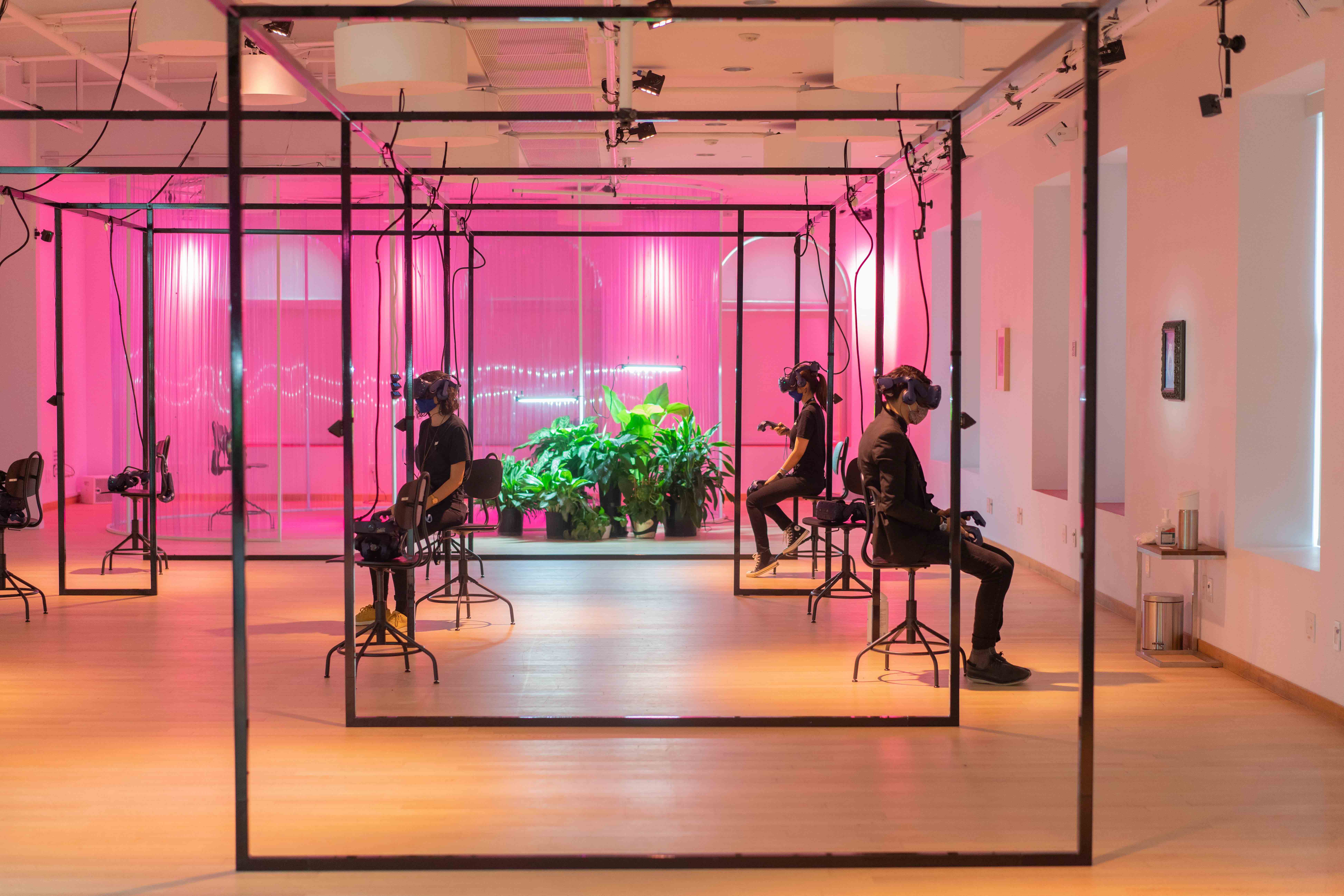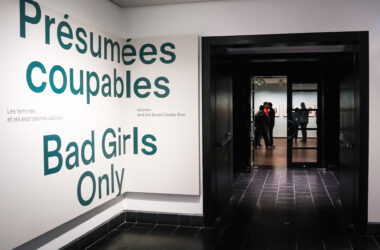For a limited time, the price of admission to Old Port’s Centre Phi will land you front and centre in your very own episode of Black Mirror. Courtesy of the globally renowned Venice Biennale, Montreal is currently home to the VR Expanded satellite program, the virtual reality component of the Venice International Film Festival. This year’s event features 44 cutting-edge virtual reality (VR) films and games hosted in art institutions from Copenhagen to Beijing, with Montreal boasting the only satellite location in Canada. Guests are invited to delight themselves in two-hour intervals, sampling state-of-the-art VR experiences which organizers claim are a glimpse of the future of digital entertainment.
Immediately upon entry, the Centre Phi looks like an exhibit of tomorrow. The ultra-modern multimedia centre occupies the hollowed-out interior of an Old Port heritage building. VR Expanded is housed in Espace D, a sparse white room encased in one-way glass and illuminated by the calm glow of orange and pink LEDs—somewhere between Mark Zuckerberg’s yoga room and the interior of a kaleidoscope. Once seated at appropriately distanced swivel chairs, guests are instructed to put on the goggle-helmet apparatuses dangling from the ceiling, and the adventure begins.
The experience, at first, is immensely disorienting. Immersing oneself in an artificially constructed reality is genuinely novel, and requires some acclimation. Substituting a screen for goggles allows for a serious reduction of distance between media and audience, which profoundly amplifies one’s sensory experiences. What’s more, the physicality of VR entertainment—standing up, spinning around, reaching out—lends a dynamic that cannot be experienced from the depths of a sofa. It would appear the future of entertainment is both immersive and kinetic, with dizzy spells to spare.
The implications of this novel medium vary across the exhibit’s diverse offerings. In children’s programming—films like Ajax All Powerful and the Canadian animated short In the Land of the Flabby Schnook—the transition is not so jarring, and is more like stepping inside a 360-degree television set than an alternate reality. In the Land of the Flabby Schnook is particularly endearing, as the user glides through an adorably spooky dreamscape while watching two siblings learn to conquer their fear of the dark. In more ominous games, however, such as Vibeke Bryld’s Hush, a Danish installation that slowly submerges the user in the haunted murk of the North Sea, VR raises the stakes. Fear is not exempt from the intensifying effects of VR, and users will quickly find themselves swiveling in their chairs to make sure there is nothing behind them.
The exhibit’s most exciting promises for the future of entertainment lie in the works that test VR’s capacity to augment emotional experiences. In Randall Okita’s oral history project The Book of Distance, interviews and family photographs are woven together with VR animation to tell the story of his grandfather, who immigrated to Canada from Hiroshima, Japan in 1935. In transforming his grandfather’s life—from departure and integration to forced internment and incalculable loss—into a first-person, interactive experience, Okita alludes to perhaps the greatest virtue of VR: Its power to inspire empathy. Compassion has always demanded that we walk in the shoes of others and look through borrowed eyes at new perspectives; The Book of Distance, like many of the selections at VR Expanded, takes this literally.
Whether or not VR truly is the future of the digital world, works like the ones at the Venice Biennale prove that there is merit to the experiment. There will always be value in works of art that interrupt our solipsism and pull us outside of ourselves—even if only for a brief moment spent standing on the deck of a virtual steamship, feeling the unexpected urge to wave goodbye to a home you never knew.
The Venice VR Expanded – Satellite Program is running at the PHI Centre until September 12.








